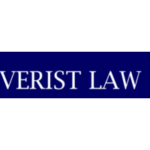-
Please briefly describe the regulatory framework and landscape of both equity and debt capital market in your jurisdiction, including the major regimes, regulators and authorities.
The main finance regulator in Mexico is the Ministry of Finance and Public Credit (Secretaría de Hacienda y Crédito Público, the “Ministry of Finance”). The Ministry of Finance is responsible for facilitating transactions and promoting the development, expansion and competitiveness of the market. The Ministry of Finance acts through subordinated entities under its control, such as the National Banking and Securities Commission (Comisión Nacional Bancaria y de Valores, “CNBV” for its acronym in Spanish).
The CNBV is the central securities and banking regulator in Mexico and oversees the two Mexican stock exchanges – Bolsa Mexicana de Valores (“BMV”) and Bolsa Institucional de Valores (“BIVA”) (jointly, the “Stock Exchanges”) – and all other capital market participants, such as underwriters, broker-dealers, issuers and securities depositaries. Key capital market statutes include the Securities Market Law (Ley del Mercado de Valores), which provides the general operational framework for securities-related commercial acts, and the general rules and regulations issued by the CNBV, Mexico’s Central Bank – Banco de México – (Central Bank) and the Stock Exchange, which include:
- General provisions applicable to issuers and other participants of the securities market (Disposiciones de carácter general aplicables a las emisoras de valores y a otros participantes del mercado de valores) (the “General Provisions”)
- BMV’s internal regulations.
- BIVA’s internal regulations.
- Indeval’s (the central securities depository for the Mexican securities market) internal regulations.
- General regulations applicable to stock exchanges.
- General regulations applicable to broker-dealers.
- General regulations applicable to entities and issuers regulated by the CNBV that contract external audit services for basic financial statements.
The General Law of Negotiable Instruments and Credit Transactions (Ley General de Títulos y Operaciones de Crédito) provides the regulatory regime applicable to, among other matters, private securities, transactions with such securities and holders’ meetings, and sets forth the rights and available remedies for instrument holders. The law also governs the special purpose vehicle that is most commonly used in securitisation transactions, the Mexican trust and trust certificates issued thereunder, which are securities used in many Mexican structured finance transactions and are also regulated under the Securities Market Law as trust certificates. Separate regulation that may be relevant to consider when working on capital markets transactions include laws and regulations applicable to the Mexican pension funds and the General provisions applicable to securities transactions by directors, officers or employees of financial entities and other supervised persons (Disposiciones de carácter general aplicables a las operaciones con valores que realicen los consejeros, directivos y empleados de entidades financieras y demás personas obligadas).
-
Please briefly describe the common exemptions for securities offerings without prospectus and/or regulatory registration in your market.
The common exemptions are the following:
- Private offerings of unregistered securities undertaken in Mexico complying with at least one of the following requirements: (i) the acquirers are solely institutional or qualified investors, (ii) the securities are offered to less than 100 investors, (iii) the offer is made under employee stock option plans, and (iv) the offer is made to shareholders of companies, as an incentive for the shareholders to carry out the main purpose of such companies.
- The issuer qualifies as a recurring issuer (emisor recurrente) with an offering program (programa de colocación) of debt or equity. The authorization process for a securities offering is streamlined since it uses forms of the offering documents as authorized by the CNBV. In this case, the issuer will be required to file an informative supplement (suplemento informativo).
- Short term issuances. An issuance is qualified as “short term” if the securities issued have a term equal to or less than one year.
-
Please describe the insider trading regulations and describe what a public company would generally do to prevent any violation of such regulations.
In general terms (i) financial entities that are part of financial groups to which multiple banking institutions, broker-dealers, investment company operating companies, companies that distribute stock of investment companies or financial entities that distribute stock of investment companies belong, (ii) issuers, and (iii) simplified issuers, among other legal entities, are required to establish guidelines, policies and control mechanisms for securities transactions carried out by their directors, officers and employees who, by virtue of their position, have or may have access to privileged information. In addition to the above, the Securities Market Law establishes guidelines for the execution of transactions using privileged information, as well as for the disclosure of such actions.
Knowledge of relevant events that have not been disclosed to the market by the issuer or simplified issuer through the Stock Exchange on which its securities are listed constitutes privileged information under the Securities Market Law. To be considered “privileged information” it will be sufficient that part or an extract of the information may influence the price of an issuer’s securities.
The Securities Market Law also establishes sanctions for those who, in contravention of the law, (i) provide by any means or transmit privileged information to another person or persons or make recommendations based on privileged information about securities (imprisonment from 3 to 15 years) or (ii) carry out or instruct the execution of operations making use of privileged information and obtain a benefit from them (imprisonment from 2 to 6 years, when the amount of the benefit is up to approximately $11,314,0001 Mexican pesos and imprisonment of four to twelve years, when the benefit exceeds such amount).
Footnote(s):
1 This amount corresponds to 100,000 Mexican Measurement Units (UMAs) in 2025, approximately USD$580,000.
-
What are the key remedies available to shareholders of public companies / debt securities holders in your market?
Shareholders of public companies, with the following percentages of capital stock ownership, will have the following rights and remedies: (i) with 20% or more of the outstanding shares, to judicially oppose the resolutions of a shareholders meeting, and (ii) with 5% or more of the outstanding shares, to enforce the liability and indemnification for damages against the manager or directors of the company for breach of their obligations.
In addition, Mexican courts have established that any shareholder may claim the invalidity of resolutions of a holders’ meeting that are contrary to applicable law or bylaws provisions, regardless of the lack of a special percentage of participation in the company’s equity.
For debt securities holders, the indenture (acta de emisión) and the debt certificate establish the key rights and remedies available for them in case of an issuer’s breach of an obligation.
-
Please describe the expected outlook in fund raising activities (equity and debt) in your market in 2025.
According to the Organization for Economic Cooperation and Development (OECD), the Mexican economy is expected to grow by 0.4% in 2025 and 1.1% in 2026. Public consumption and capital expenditure are expected to remain constrained due to ongoing fiscal consolidation efforts. Export performance will likely be weighed down by the impact of trade barriers (tariffs), elevated geopolitical and policy uncertainty, and a slowdown in global demand. While declining interest rates may offer some support to investment activity, a meaningful recovery is anticipated to be gradual, reflecting persistent uncertainty in the macroeconomic and regulatory environment.2
Private investment in Mexico is expected to gradually respond to lower interest rates, although persistent domestic and global uncertainties will likely continue to constrain capital formation. On the other hand, public investment is anticipated to remain limited, aligned with fiscal consolidation efforts aimed at reducing the budget deficit. Export growth on a quarterly basis may be hindered by elevated trade tariffs and external uncertainty. Given Mexico’s strong trade and financial ties with the United States, the anticipated U.S. economic slowdown in 2025–2026 and overall tighter global financial conditions could further dampen external demand and constrain investment flows. Additionally, heightened global risk aversion and exchange rate volatility may increase sovereign borrowing costs and further erode fiscal flexibility. On the upside, a reduction in policy and trade-related uncertainty—such as a timely and favorable renegotiation of the United States-Mexico-Canada Agreement (USMCA)—could provide stronger-than-expected support to investment and export activity.3
Changes in governmental policies and regulatory frameworks, such as the new reform to the Mexican Constitution regarding the Judicial System published in the Official Gazette of the Federation and effective as of September 15, 2024 (the “Judicial Reform”), could significantly disrupt various sectors and affect investor trust and the overall business environment in the country. Under the Judicial Reform, among other things, magistrates, judges and justices of the Supreme Court will no longer be appointed and will be democratically elected by direct vote of the citizens.4 Consequently, confidence in the Mexican justice system and courts has been affected. The impact of the Judicial Reform on Mexico’s financial and economic sector is uncertain, and it is not possible to predict how it may or may not impact fund raising activities in the country.
Footnote(s):
2 Source: OECD Economic Outlook for Mexico, Volume 2025, Issue 1, available in https://www.oecd.org/en/publications/oecd-economic-outlook-volume-2025-issue-1_83363382-en/full-report/mexico_7ef08b92.html
3 Idem.
4 The first elections were held on June 1, 2025
-
What are the essential requirements for listing a company in the main stock exchange(s) in your market? Please describe the simplified regime (if any) for company seeking a dual-listing in your market.
Listing requirements may slightly differ between each of the Stock Exchanges. In both cases, it is necessary to file the documentation set forth in the Securities Market Law and the General Provisions for the registration of securities in the Mexican Securities Registry (Registro Nacional de Valores, “RNV” for its acronym in Spanish) and for the authorization of the public offering by the CNBV. The required documents may have some variations and specifications depending on the type of security, but in general, the following documents are required:
- Incorporation deed of the issuer, as well as any amendments to its bylaws.
- Preliminary placement prospectus and, if applicable, informative supplement, to be replaced by the definitive prospectus or supplement no later than the day of commencement of the offering.
- Document with key information for the investment (documento con información clave para la inversión, “DICI” for its acronym in Spanish).
- Legal opinion issued by an independent external lawyer.
- In the case of debt instruments and residual trust debt securities, a rating on the credit risk of the securities issued by at least one accredited credit rating institution.
- Information on the guarantor or endorsee in the case of guaranteed instruments, as well as the guarantees, their constitution and form of execution.
On January 21, 2025, the General provisions applicable to simplified issuers and securities subject to simplified registration (Disposiciones de carácter general aplicables a las emisoras simplificadas y los valores objeto de inscripción simplificada) were published in the Official Gazette of the Federation, establishing the requirements for the registration of securities by a simplified issuer (following the amendments to the Securities Market Law published on December 28, 2023). Although the general requirements for simplified issuers are the same, the following are the main features:
- Broker-dealers and stock exchanges will be responsible for reviewing the documentation of potential simplified issuers. Upon obtaining a favorable opinion from the stock exchange, the simplified registration request will be submitted to the CNBV without it conducting a full review of the relevant documentation, which makes it significantly more expedited.
- The securities eligible for simplified registration are: (i) shares of domestic or foreign companies, (ii) debt instruments (direct issuances or securitizations), and (iii) structured securities5.
- The public offering of these securities will be “restricted”, meaning that only institutional or qualified investors may acquire them. Alternatively, the securities may be listed without an offering when resulting from mergers or spin-offs involving simplified issuers.
- The issuance limits for simplified issuers are as follows:
- Equity (shares): 1,250 million Investment Units (Unidades de Inversión, “UDI”), approximately USD $550 million, as the maximum amount per issuance and on an annual basis.
- Debt:
- Level I: 75 million UDIs, approximately USD $33 million, as the maximum per issuance, and 900 million UDIs, approximately USD $396 million, as the annual limit.
- Level II: 1,250 million UDIs, approximately USD $550 million.
- Simplified issuers must have at least two years of operations and revenues derived from their core business activity.
Stock Exchanges operate the international quotation system (Sistema Internacional de Cotizaciones, “SIC” for its acronym in Spanish), which is an electronic conduit to trade stocks listed on certain foreign stock exchanges recognised by the CNBV. The SIC, which allows foreign companies to be listed alongside local issuers in both Stock Exchanges, has been hugely successful with a significant increase in the last five years, driven mainly by ETFs.
The Stock Exchanges, by their own means, or by the request of Mexican brokers-dealers or Mexican banks, may request CNBV´s acknowledgement of foreign securities in accordance with the General provisions applicable to SIC (Disposiciones de carácter general aplicables a los sistemas internacionales de cotizaciones “SIC General Provisions”). The filing to recognize foreign securities before CNBV must include the following documents: (i) report regarding the compliance of the requirements established in SIC General Provisions; (ii) prospectus or annual, or interim, report with the financial information of the foreign issuer and the foreign securities; (iii) legal opinion regarding compliance of the requirements established in SIC General Provisions; and (iv) description of the means and mechanisms where the investors can access the financial, accounting, legal and administrative information of the foreign issuer and the foreign securities.
Once the CNBV acknowledges the foreign issuer and the foreign securities, the applicant must comply with the requirements of the Stock Exchange considering whether the securities represent equity or debt, and prior to list any security, the Stock Exchange must obtain a report from Indeval indicating the viability to implement agreements with foreign securities depositary institutions.
Applicants must provide the following information to the Stock Exchange to list equity securities in the SIC:
- General information of the foreign issuer to the Stock Exchange and the level of compliance of the issuer in accordance with applicable law.
- Evidence that 100% of the securities issued were placed abroad through a public offer and the placement took place more than 3 months before the listing in the SIC.
- The equity securities of foreign issuers shall have the capitalization value determined by the Stock Exchange. The Stock Exchange may establish exceptions to protect the market.
Applicants must provide the following information to the Stock Exchange to list debt securities in the SIC:
- General information of the foreign issuer to the Stock Exchange and the level of compliance of the issuer in accordance with applicable law.
- Copy of the prospectus and the letter with the particulars and final terms of the issuance.
- Copy of the opinion issued by a rating agency regarding the credit quality of the foreign issuers and the foreign securities.
- Evidence that 100% of the securities issued were placed abroad through a public offer and the placement took place more than 3 months before the listing in the SIC.
Footnote(s):
5 The secondary regulations and the Stock Exchanges internal rules applicable to structured instruments are pending to be issued by the CNBV and the Stock Exchanges.
-
Are weighted voting rights in listed companies allowed in your market? What special rights are allowed to be reserved (if any) to certain shareholders after a company goes public?
Weighted voting rights are not contemplated under Mexican law but may be established by the shareholders of a company through voting agreements amongst them. The rights and limitations of the shares shall be disclosed by the issuer through the Stock Exchanges.
-
Is listing of SPAC allowed in your market? If so, please briefly describe the relevant regulations for SPAC listing.
Listing of SPACs is allowed in the Mexican market, however there are no specific regulations to that effect. SPACs are incorporated as a stock corporation (sociedad anónima bursátil or “SAB” for its acronym in Spanish), which are subject to the regulation framework of the Securities Market Law and the internal regulations of the applicable Stock Exchange in order to list the shares of such corporation. A SPAC public offering may be carried out globally (Mexican public offering plus an international tranche, usually under Rule 144 A/Regulation S of the US Securities Act of 1933).
For a Stock Exchange to list the shares of a corporation it must have a three year track record at a minimum, at least 9 million US dollars in equity (approximately) and operative profits accumulated in the last 3 years. As incorporated as a SAB, such requisites may be waived by the Stock Exchange if the SPAC has potential growth expectations – furthermore, BMV regulations expressly provide that the required equity amount might be fulfilled by a SPAC with the funds raised in the IPO.
-
Please describe the potential prospectus liabilities in your market.
Managers and directors of a public company incur in liability for disseminating to the public false or misleading information, and the shareholders have the right to request indemnification relief in accordance with the remedies described in question 4 above.
Likewise, any person who disseminates false information about an issuer through placement prospectuses or similar informative documents or any mass media, or hides or omits to disclose information required by law, will face (i) five to ten years of imprisonment, and (ii) a fine of an amount ranging between $3,394,2006 Mexican pesos and $16,971,0007.
Footnote(s):
6 This amount corresponds to 30,000 Mexican Measurement Units (UMAs) in 2025, approximately USD$176,322.
7 This amount corresponds to 150,000 Mexican Measurement Units (UMAs) in 2025, approximately USD$881,610.
-
Please describe the key minority shareholder protection mechanisms in your market.
The key minority shareholder protection mechanisms are the following:
- Shareholders holding at least 10% of the stock of a public company or issuer may:
- appoint and remove a member of the board of directors;
- request that a shareholders’ meeting be called; and
- request a one-time postponement of a shareholders’ meeting, for three calendar days and without the need for a new call to be made, of the vote on any matter on which they do not consider themselves sufficiently informed.
- Shareholders holding at least 5% of the stock of a public company or issuer may bring a civil liability action against the members of the board of directors for the benefit of the company.
- Shareholders holding at least 20% of the stock of a public company or issuer may oppose in court resolutions of general meetings, provided that they have the right to vote on the matter in question.
In addition, Mexican Supreme Court has recently established that any individual shareholder may claim civil liability from the managers or directors for any direct damages caused by their illegal conduct, regardless of the actions that may be taken by the company in accordance with the aforementioned minority protection mechanisms.
- Shareholders holding at least 10% of the stock of a public company or issuer may:
-
What are the common types of transactions involving public companies that would require regulatory scrutiny and/or disclosure?
The main types of public company transactions requiring regulatory scrutiny and/or public disclosure are the following: (i) changes in the company’s corporate structure; (ii) amendments to the company’s bylaws; (iii) changes in the company’s directors and executive officers; (iv) execution, breach or termination of contracts with customers, suppliers or the government, which are substantial for the company’s purpose or main activities; (v) participation of the company in any public bidding; (vi) negotiation or execution of investment, merger or spin-off projects, or that involve the acquisition of company stock that modify its capital structure.
In addition, public companies that implement corporate restructurings must provide the CNBV and the public with a brochure or prospectus on such restructuring, containing the information necessary for shareholders to be able to make an informed decision on the restructuring.
-
Please describe the scope of related parties and introduce any special regulatory approval and disclosure mechanism in place for related parties’ transactions.
Securities Market Law considers as “related parties” the following: (i) persons with control or significant influence in legal entities of the same issuer’s business group or consortium and directors and officers of such corporate group; (ii) persons with power of command in legal entities of the same issuer’s business group or consortium; (iii) spouses, concubines, persons related by blood, affinity or civil relationship up to the third degree with persons described in the previous (i) and (ii) items, as well as partners and co-owners of such persons; (iv) companies that belong to the same issuer’s corporate group or consortium; and (v) companies where the persons described in items (i), (ii) and (iii) have control or significant influence. Mexican regulation establishes certain obligations to submit to CNBV information related to the company’s control group, related parties of the company, and its relevant directors.
Transactions that the company carries out with related parties must be approved by the company’s board of directors with the prior favorable opinion of the internal practices committee. In case of structured instruments (such as CKDs, Fibras, Fibras-E and Cerpis), depending on the amount of the transaction, approval of such transactions shall be granted by the holders’ meeting or the technical committee of the corresponding trust.
-
What are the key continuing obligations of a substantial shareholder and controlling shareholder of a listed company?
In Mexico, there are disclosure obligations regarding public companies’ shareholding. In general, publicly traded companies have the obligation to provide and disclose corporate information about its shareholders to CNBV and the Stock Exchanges.
The main obligations regarding acquisitions of securities of public companies are as follows: (i) acquisition of the stock of a public company that result in the holding of 30% or more of the company’s capital stock must be made through a public tender offer, (ii) acquisitions of shares of a public company that result in a holding of more than 10% but less than 30% of the company’s capital stock must be disclosed to the market; (iii) related parties of a public company that increase or reduce their shareholding by 5% or more, must inform the market of such circumstance; (iv) any person holding 10% or more of the stock of a public company must inform the CNBV and the market any acquisitions or sales of such stock.
-
What corporate actions or transactions require shareholders’ approval?
The law establishes specific matters of a public company to be decided through a shareholders’ meeting. Generally speaking, the ordinary shareholders’ meeting must (i) discuss, approve or amend the report of the board of directors referring to the principal policies and accounting principles used to prepare the financial information and the report of the CEO regarding the annual financial information of the company, (ii) if applicable, appoint, remove or ratify the members of the board of directors and presidents of each committee of the company, as well as qualify their independence under Mexican Securities Law, and (iii) determine the consideration corresponding to the members of the board of directors and committees. Additionally, the ordinary shareholders’ meeting of a public company must approve any transaction that represents 20% or more of the consolidated assets of the company.
An extraordinary shareholders’ meeting will decide on (i) the extension of the duration of the company; (ii) the early dissolution of the company; (iii) increases or reductions of the capital stock; (iv) change of corporate purpose; (v) change of the company’s nationality; (vi) transformation of the company; (vii) mergers; (viii) issuance of preferred shares; (ix) redemption by the company of its own shares and issuance of beneficial interest stock; (x) issuance of bonds; (xi) any other amendment to the bylaws, including spin-offs; and (xii) any other matters for which the law or the corresponding corporate charter requires a special quorum. Additionally, a public company is only able to request the cancellation of the registration of its stock (deslisting) in the Mexican Securities Registry with the approval of at least 95% of the shareholders.
Apart from the matters previously listed, the bylaws of the company may contemplate matters to be decided by the shareholders’ meeting or any other corporate body.
-
Under what circumstances a mandatory tender offer would be triggered? Is there any exemption commonly relied upon?
The person or group of persons who intend to acquire or attain by any means, directly or indirectly, the ownership of 30% or more of the common shares of a public company, through a stock exchange or private market, through one or several operations of any nature, simultaneous or successive, must carry out a tender offer.
The CNBV may exempt from the obligation to conduct a tender offer in the following cases:
- Market price acquisitions resulting from a redistribution of common stock among members of the same group of persons, provided that the acquirers have been shareholders of the company for more than five years and the group of persons that maintain control as a result of the acquisition held a relevant percentage of the capital stock during such period.
- Reductions of capital stock in which the participation of the person or group of persons in question results in thirty percent or more of the total number of outstanding shares.
- The viability of the company is at risk and ordinary shares are acquired because of capital increases or corporate restructurings such as mergers, spin-offs, purchase and sale of assets and capitalization of liabilities, provided that there is a favorable opinion of the Board of Directors, subject to the prior agreement of the committee in charge of corporate practices.
- Execution and adjudication, judicial or extrajudicial, of guarantees on shares, derived from a debt whose guarantee is constituted in favor of financial entities, including when they act as trustees.
- Acquisitions obtained by inheritance, bequest or donation free of charge, from the spouse or concubine, as well as from persons with whom they are related by blood, affinity or civil relationship, up to the fourth degree.
- Transactions that are consistent with the protection of the interests of the minority shareholders of the company. The authorization referred to in this section must be granted by the CNBV, prior authorization of the company’s board of directors.
-
Are public companies required to engage any independent directors? What are the specific requirements for a director to be considered as “independent”?
Yes, at least 25% of the members of the Board of Directors of a public company must be independent pursuant to the requirements of independence established by law.
Under applicable law, to be deemed independent, a person must not fall into the following categories:
- Relevant executives or employees of the company or of the legal entities that conform the business group or consortium to which the company belongs, as well as statutory auditors. The aforementioned limitation shall be applicable to those individuals who have held such positions during the 12 months immediately preceding the date of appointment.
- Individuals who have significant influence or power of command in the company or in any of the legal entities that conform the business group or consortium to which said company belongs.
- Controlling shareholders.
- Customers, service providers, suppliers, debtors, creditors, partners, directors or employees of a company that is a significant customer, service provider, supplier, debtor or creditor. A customer, service provider or supplier is considered to be significant when the sales of the company represent more than 10% of the total sales of the customer, service provider or supplier during the 12 months prior to the date of appointment. Likewise, a debtor or creditor is considered to be significant when the amount of the credit is greater than 15% of the assets of the company itself or of its counterparty.
- Those related by blood, affinity or civil relationship up to the fourth degree, as well as the spouses, and concubines of any of the individuals referred to in items 1 to 4.
Additionally, persons who have held the position of external auditor of the company (or of any of the legal entities that make up the business group or consortium to which it belongs) during the 12 months immediately preceding the date of appointment may act as independent directors of such public company.
-
What financial statements are required for a public equity offering? When do financial statements go stale? Under what accounting standards do the financial statements have to be prepared?
For a public equity offering, the company requires audited financial statements (of the company and its subsidiaries with the favorable opinion of the auditor) for the last 3 years, or since the date of the company’s incorporation, when this is less than 3 years old. When the financial statements for the most recent year are more than 6 months old as of the placement date, financial statements with a review of interim financial information with a favorable or unmodified opinion must also be filed with a cut-off date not greater than such period, in comparative form with the financial statements for the previous year in accordance with applicable accounting standards. Additionally, when such financial statements with interim review are more than 3 months old as of the placement date, last quarterly non-audited financial statements are required.
Companies must approve their financial statements each year. The date after which the financial statements will not be admissible for a public offer filing will depend on the type of transaction and securities involved. The Securities Market Law and the General Provisions establish the requirement of time regarding financial statements attending to the specifics of the transaction in question and if such financial statements must be audited or not.
The financial statements must be prepared in accordance with the International Financial Reporting Standards issued by the International Accounting Standards Board (“IFRS” or NIIF).
-
Please describe the key environmental, social, and governance (ESG) and sustainability requirements in your market. What are the key recent changes or potential changes?
Mexican investors often consider international criteria and non-binding Mexican guidelines, such as the Mexican Sustainable Taxonomy, in their investment decisions.
Managers of pension funds (AFOREs), Mexico’s largest institutional investors, must comply with ESG requirements as outlined in the General Provisions on Financial Matters Related to the Pension Systems (Disposiciones de carácter general en materia financiera de los Sistemas de Ahorro para el Retiro), which include risk management policies for Investment Funds Specialized in Pension Funds (SIEFORES), the inclusion of ESG risk assessments in investment committees, and compulsory ESG training and certification for officials. These requirements underscore the critical role of ESG considerations in mitigating long-term investment risks.
In the past years, there has been a discernible pivot towards environmental, social, and governance (ESG) considerations in new securities issuances. This change is not just to cater to institutional investors’ interests, but also in response to a global push towards more sustainable and equitable business practices. As a result and following the amendments to the Securities Market Law published on December 28, 2023, various amendments to the General Provisions were published on January 28, 2025, establishing the obligation for issuers to submit to the CNBV and the Stock Exchanges a sustainability report prepared in accordance with the IFRS Sustainability Disclosure Standards issued by the International Sustainability Standards Board (ISSB), which shall include IFRS S1 and IFRS S2 reporting standards. This report shall be submitted along with the issuers’ financial annual reports as of 2026 (reporting 2025 information).
-
What are the typical offering structures for issuing debt securities in your jurisdiction? Does the holding company issue debt securities directly or indirectly (by setting up a SPV)? What are the main purposes for issuing debt securities indirectly?
Debt can be issued directly or typically through a trust. In Mexico, the latter is the most common form of issuing debt indirectly through an SPV.
The main purpose of issuing debt indirectly is to shift the liability to the trustee, considering that the company, who acts as a settlor, contributes assets to such trust to pay, and sometimes guarantee, the debt which makes the SPV a bankruptcy-remote vehicle. In the case of direct debt, the company issuing the debt is directly liable. In the case of debt issued through a trust, the liability is shifted to the trustee, who acts as the issuer. In this sense, the holders of the certificates will have the rights derived from the certificates against the trustee and the assets that are subject to a true sale to the trust exclusively and not against the company that issued the debt through the trust.
-
Are trust structures adopted for issuing debt securities in your jurisdiction? What are the typical trustee’s duties and obligations under the trust structure after the offering?
Yes, trust structures are often adopted for issuing debt securities in Mexico. Some of the trustee’s main duties and obligations are the following:
- Provide the CNBV, Stock Exchange and the market with finance, operational and legal information of the trust in an annual and quarterly basis as provided in the General Provisions.
- Perform all acts for or tending to maintain the enforceability and validity of the title that covers the issuance of the debt certificates and the trust.
- Make payments of principal and interest on the debt certificates in accordance with the corresponding payment schedule.
- Maintain the registration of the debt certificates in the RNV and their listing in the Stock Exchange.
- Perform all acts necessary for or tending to preserve the rights, prerogatives, permits, contracts, licenses, concessions or authorizations it holds and that are relevant for the performance of its activities, in accordance with the trust, the law and in consideration of the requirements of the trust’s current business.
- Allow access to the common representative, the settlor, the manager and the rating agencies to all documents and information in its possession derived from or related to the issuance and that are to be delivered in accordance with applicable law.
-
What are the typical credit enhancement measure (guarantee, letter of credit or keep-well deed) for issuing debt securities? Please describe the factors when considering which credit enhancement structure to adopt.
Typical credit enhancement measures in Mexico include guarantees, over-collateralization, early redemption triggers, letters of credit and a senior/subordinated structure for the issuer’s debt, among others.
Factors considered to determine the credit enhancement measures to be adopted are mainly commercial and market factors at the time of the debt issuance (such as interest rates, supply and demand, among others). In addition, the economic condition and particular needs of the issuer are taken into account, such as its financial condition, its assets, and the risks to which the debt is subject.
-
What are the typical restrictive covenants in the debt securities’ terms and conditions, if any, and the purposes of such restrictive covenants? What are the future development trends of such restrictive covenants in your jurisdiction?
Typical restrictive covenants consist of the issuer refraining from the following, subject to certain thresholds:
- Selling, disposing of, transferring (for valuable consideration or free of charge) or transferring by any other means its assets in an activity that is not recurrent and/or is outside the ordinary course of business of the issuer.
- Granting credits, loans or any other form of financing to third parties.
- Prepaying any debt.
- Contracting debt.
- Creating, permitting or tolerating the existence of any liens on the assets subject to the trust (in case the debt is issued through a trust) and on other assets different from those subject to the trust.
- Decreeing or paying reversions, distributions, dividends or reimbursements of capital to its shareholders or partners.
- Modifying its constitutive documents, merging, transforming, splitting up.
- Dissolving, liquidating or making any change in the nature of their activity or in its bylaws.
- Permitting, recognizing or carrying out any change of control.
- Using the funds received for purposes other than those agreed upon.
- Making investments in fixed assets.
- Carrying out a capital reduction.
- Approving or implementing changes in its policies, controls and accounting criteria.
-
In general, who is responsible for any profit/income/withholding taxes related to the payment of debt securities’ interests in your jurisdiction?
In general, the Mexican brokers-dealers are responsible to withhold the taxes related to the payment of debt securities’ interests and to remit the corresponding amounts to the Mexican tax authorities (Servicio de Administración Tributaria). The Mexican bondholders, in accordance with their tax regime, shall consider the interests in their annual filings and credit the withholding tax, if any; non-Mexican bondholders will be subject to withholding according to their specific characteristics and potential double tax treaty benefits, subject to certain requirements.
-
What are the main listing requirements for listing debt securities in your jurisdiction? What are the continuing obligations of the issuer after the listing?
In the case of debt instruments, in addition to the general requirements for listing securities (mentioned in question 6), an opinion on the credit quality of the issuance prepared by a rating agency, with an issue date of no more than 90 business days prior to the placement date. Additionally, the issuer must deliver to the CNBV a letter stating that it informed the rating agency at the time of entering into the respective contract or agreement, as well as each time the rating agency issued an opinion on the credit quality of the issuance, if in the 2 months prior to the aforementioned dates, as applicable, the issuer itself received from another rating agency, a rating on the securities subject of the issue.
The General Provisions provide for additional specifications regarding the requirements for the listing of debt securities depending on the particulars of the relevant securities.
Mexico: Capital Markets
This country-specific Q&A provides an overview of Capital Markets laws and regulations applicable in Mexico.
-
Please briefly describe the regulatory framework and landscape of both equity and debt capital market in your jurisdiction, including the major regimes, regulators and authorities.
-
Please briefly describe the common exemptions for securities offerings without prospectus and/or regulatory registration in your market.
-
Please describe the insider trading regulations and describe what a public company would generally do to prevent any violation of such regulations.
-
What are the key remedies available to shareholders of public companies / debt securities holders in your market?
-
Please describe the expected outlook in fund raising activities (equity and debt) in your market in 2025.
-
What are the essential requirements for listing a company in the main stock exchange(s) in your market? Please describe the simplified regime (if any) for company seeking a dual-listing in your market.
-
Are weighted voting rights in listed companies allowed in your market? What special rights are allowed to be reserved (if any) to certain shareholders after a company goes public?
-
Is listing of SPAC allowed in your market? If so, please briefly describe the relevant regulations for SPAC listing.
-
Please describe the potential prospectus liabilities in your market.
-
Please describe the key minority shareholder protection mechanisms in your market.
-
What are the common types of transactions involving public companies that would require regulatory scrutiny and/or disclosure?
-
Please describe the scope of related parties and introduce any special regulatory approval and disclosure mechanism in place for related parties’ transactions.
-
What are the key continuing obligations of a substantial shareholder and controlling shareholder of a listed company?
-
What corporate actions or transactions require shareholders’ approval?
-
Under what circumstances a mandatory tender offer would be triggered? Is there any exemption commonly relied upon?
-
Are public companies required to engage any independent directors? What are the specific requirements for a director to be considered as “independent”?
-
What financial statements are required for a public equity offering? When do financial statements go stale? Under what accounting standards do the financial statements have to be prepared?
-
Please describe the key environmental, social, and governance (ESG) and sustainability requirements in your market. What are the key recent changes or potential changes?
-
What are the typical offering structures for issuing debt securities in your jurisdiction? Does the holding company issue debt securities directly or indirectly (by setting up a SPV)? What are the main purposes for issuing debt securities indirectly?
-
Are trust structures adopted for issuing debt securities in your jurisdiction? What are the typical trustee’s duties and obligations under the trust structure after the offering?
-
What are the typical credit enhancement measure (guarantee, letter of credit or keep-well deed) for issuing debt securities? Please describe the factors when considering which credit enhancement structure to adopt.
-
What are the typical restrictive covenants in the debt securities’ terms and conditions, if any, and the purposes of such restrictive covenants? What are the future development trends of such restrictive covenants in your jurisdiction?
-
In general, who is responsible for any profit/income/withholding taxes related to the payment of debt securities’ interests in your jurisdiction?
-
What are the main listing requirements for listing debt securities in your jurisdiction? What are the continuing obligations of the issuer after the listing?

















